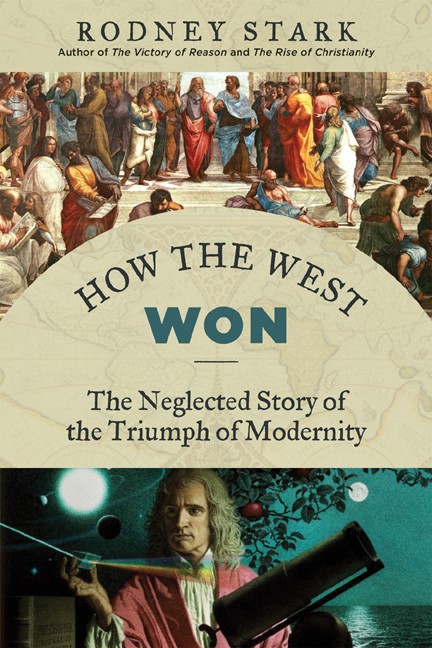 What if the Roman Empire limited, rather than enhanced, the development of Western civilization? What if there were no “Dark Ages”? What if the Christian Church spurred, rather than stunted, the advance of science?
What if the Roman Empire limited, rather than enhanced, the development of Western civilization? What if there were no “Dark Ages”? What if the Christian Church spurred, rather than stunted, the advance of science?
These three questions spell out some of the key challenges to conventional wisdom put forward in Rodney Stark’s book, How The West Won: The Neglected Story of the Triumph of Modernity. Stark attempts to pinpoint the reasons for the West’s success and to rebut common fallacies about that success.
Among his key arguments: Liberty and property rights made essential contributions to society’s advance.
When property rights are not secure, it may be pointless to be more productive. If, for example, the lord leaves the peasant the same bare minimum no matter how good the crop, it is better for the peasant to conceal some of the crop than to improve the yield. That has been the state of affairs in most societies throughout history — not just for the peasantry but for nearly everyone else as well. … Ali Pasha, the Ottoman commander at the Battle of Lepanto, was afraid to leave his fortune at home, even though he was the sultan’s brother-in-law. The Ottoman sultan, like the emperor of China, claimed ownership of everything; whenever either of them needed funds, “confiscation of the property of wealthy subjects was entirely in order,” as the economist William K. Baumol observed. And that is precisely why the rulers of the great empires were rich but their societies were poor and unproductive. It also is precisely why the Industrial Revolution took place in Britain, not in China or even in France.
… [T]he Magna Carta guaranteed the property rights not only of British citizens but even of foreign merchants. Hence, unlike their counterparts in China, iron industrialists in England were secure against government seizure. Writing in 1776, the same year that James Watt perfected his steam engine, Adam Smith explained why liberty and secure property rights produce progress:
That security which the laws of Great Britain give to every man that he shall enjoy the fruits of his own labour, is alone sufficient to make any country flourish. … The natural effort of every individual is to better his own condition, when suffered to exert itself with freedom and security, is so powerful a principle, that it is alone, and without any assistance, … capable of carrying on the society to wealth and prosperity. … In Great Britain industry is perfectly secure; and though it is far from being perfectly free, it is as free or freer than in any other part of Europe.
In contrast, taxes were so confiscatory in France that, as Smith pointed out, the French farmer “was afraid to have a good team of horses or oxen, but endeavors to cultivate with the meanest and most wretched instruments of husbandry that he can,” so that he will appear poor to the tax collector.


